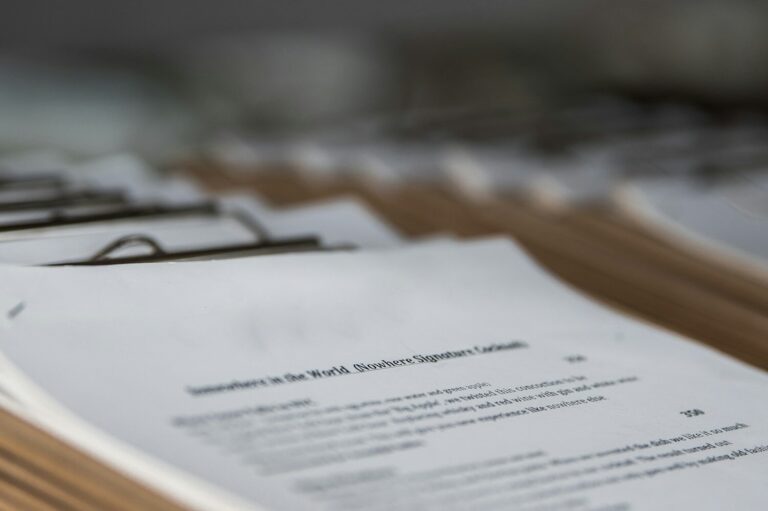With more people living, working and marrying across borders, international divorces are becoming increasingly common. But when more than one country is involved, the legal process becomes more complex – and knowing where to start can feel overwhelming.
In this article, we explain how international divorce works in the UK, who qualifies to apply here, what complications can arise and how to protect your rights when multiple jurisdictions are involved. You’ll also find out how to arrange a free 30-minute consultation with a solicitor to get tailored advice for your situation.
What is an international divorce?
An international divorce is when a couple has connections to more than one country – for example, because one or both spouses live abroad, are foreign nationals or own property in another country. These divorces often involve cross-border issues such as:
- Where to apply for divorce
- Which country’s laws will govern the divorce
- How assets in different countries will be divided
- Which court has jurisdiction over financial or child matters
While these cases follow the same general divorce procedure as any UK divorce, the added international element can make them more legally and logistically challenging.
Who can get divorced in the UK?
To file for divorce in England or Wales, you don’t need to be a British citizen. However, one of the following must apply:
- You or your spouse are habitually resident in England or Wales (i.e. living here on a settled basis) or
- You are domiciled in England or Wales (generally meaning this is your permanent home) or
- Both of you last lived together in England or Wales
It’s possible to file for divorce in more than one country if both parties have strong connections to more than one jurisdiction. This is known as a jurisdiction race and where the divorce is first filed can affect how the case is decided – particularly with regard to finances.
Why does the country of divorce matter?
Different countries have different approaches to divorce, financial settlements and child arrangements. Where your divorce takes place can impact:
- What assets are considered marital or non-marital
- Whether prenuptial agreements are enforced
- How pensions, property and business interests are divided
- Whether spousal maintenance is awarded and for how long
- How quickly or fairly proceedings are handled
In some cases, one spouse may be financially disadvantaged if the divorce happens in the wrong jurisdiction. That’s why it’s vital to seek legal advice as early as possible to understand where to file – and what’s at stake.
What about Scotland and Northern Ireland?
Scotland and Northern Ireland have separate legal systems from England and Wales. If you’re filing for divorce within the UK, the rules and outcomes may differ depending on where the case is heard. This includes variations in:
- Financial orders
- Child arrangements
- Divorce timelines
A family law solicitor can advise on whether England, Wales, Scotland or Northern Ireland is the best jurisdiction for your case.
What if my spouse lives abroad?
You can still apply for divorce in England or Wales if your spouse lives overseas – as long as you meet the eligibility criteria. The court will need to be satisfied that it has jurisdiction to hear the case.
Serving divorce papers on an overseas spouse is possible but may require translation, formal international service rules or extra steps depending on the country.
If your spouse refuses to cooperate or is hard to contact, the court may allow service by alternative means or allow the divorce to proceed in their absence, provided you’ve made reasonable attempts.
How are international assets handled?
If you or your spouse own property, pensions or financial assets abroad, they can still be considered as part of a UK divorce settlement.
However, enforcing UK court orders in another country may require additional legal steps. In some cases, courts in the other country may refuse to recognise or implement a UK order.
This makes it important to:
- Identify and disclose all international assets early
- Get advice on enforcement options across borders
- Work with solicitors experienced in international finance and family law
What about children and custody across borders?
International divorce can complicate child arrangements – especially if one parent wants to relocate or already lives abroad. UK courts prioritise the child’s welfare and will consider:
- Where the child currently lives
- Their relationship with both parents
- The impact of moving country or staying behind
If one parent removes a child from the UK without the other’s permission, it may be considered child abduction under UK law and international treaties like the Hague Convention.
Child relocation cases can be extremely complex. Legal advice is essential if you or your ex-partner wish to live with your child in another country after divorce.
Do international divorces take longer?
They can – especially when overseas service, jurisdiction disputes or cross-border asset issues are involved. Delays may also arise if cooperation from foreign courts or lawyers is needed.
That said, early legal planning and clear communication can prevent many of the typical pitfalls. If your case is relatively uncontested, it’s still possible to complete an international divorce within the usual UK timeframes.
Get expert advice on your international divorce
International divorces require careful planning, clear legal advice and a deep understanding of cross-border rules. Choosing the right family law and divorce solicitor early can protect your finances, family relationships and future stability.
Book your free 30-minute consultation with an experienced divorce solicitor today. You can fill in the form below, call 0203 983 5080 or email [email protected]. We’re available for video appointments or in-person meetings at our offices in London (Harrow, Canary Wharf or Piccadilly Circus) or Manchester City Centre.




